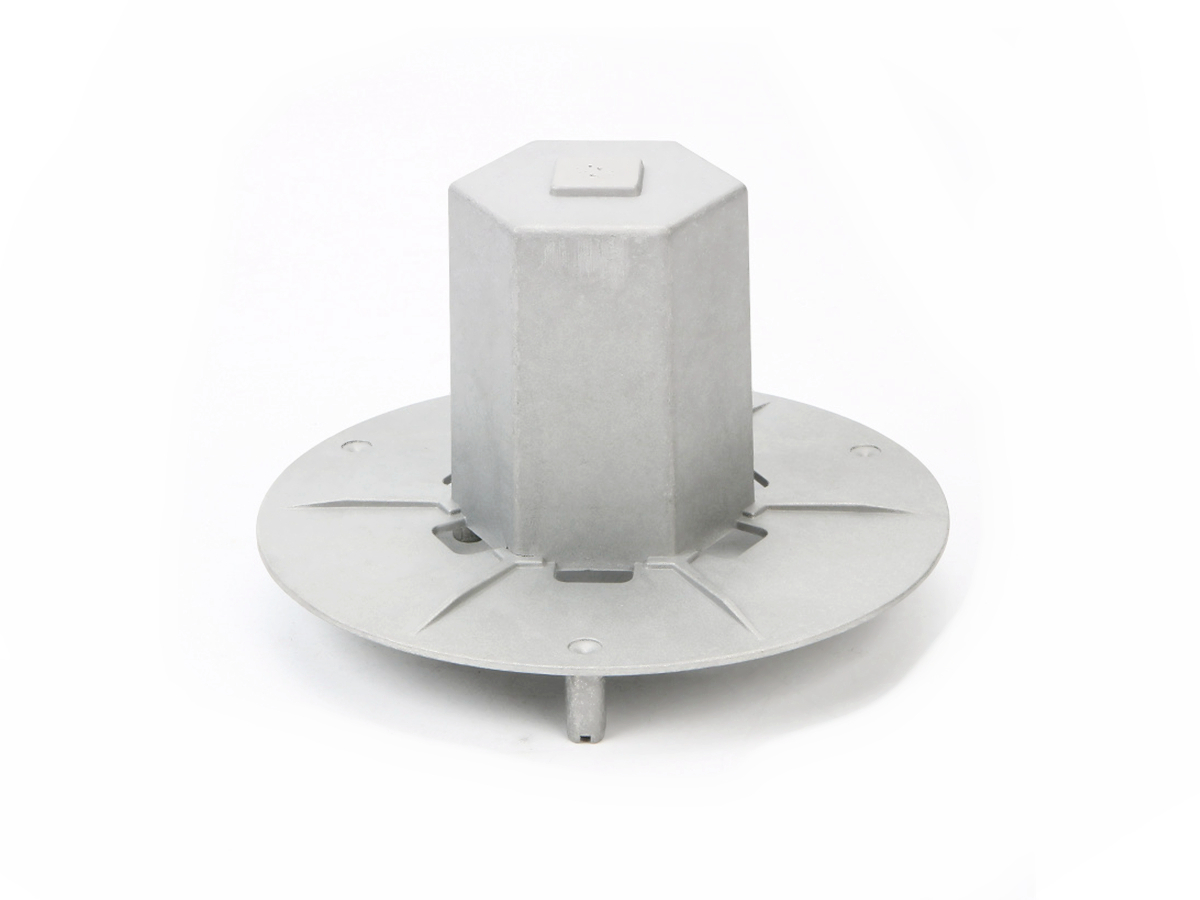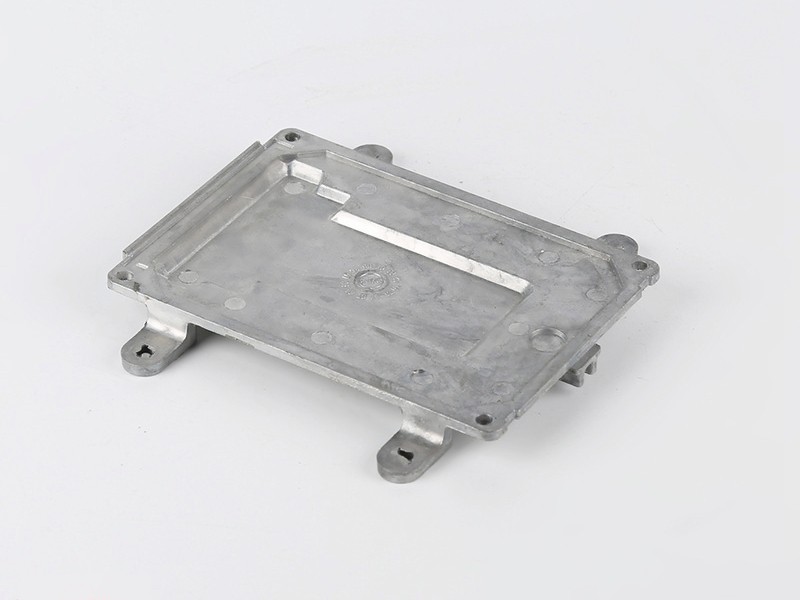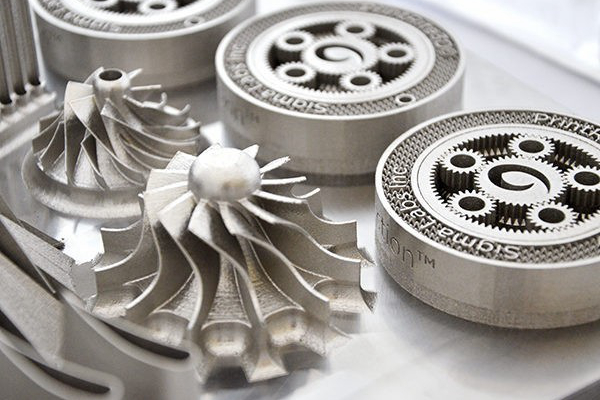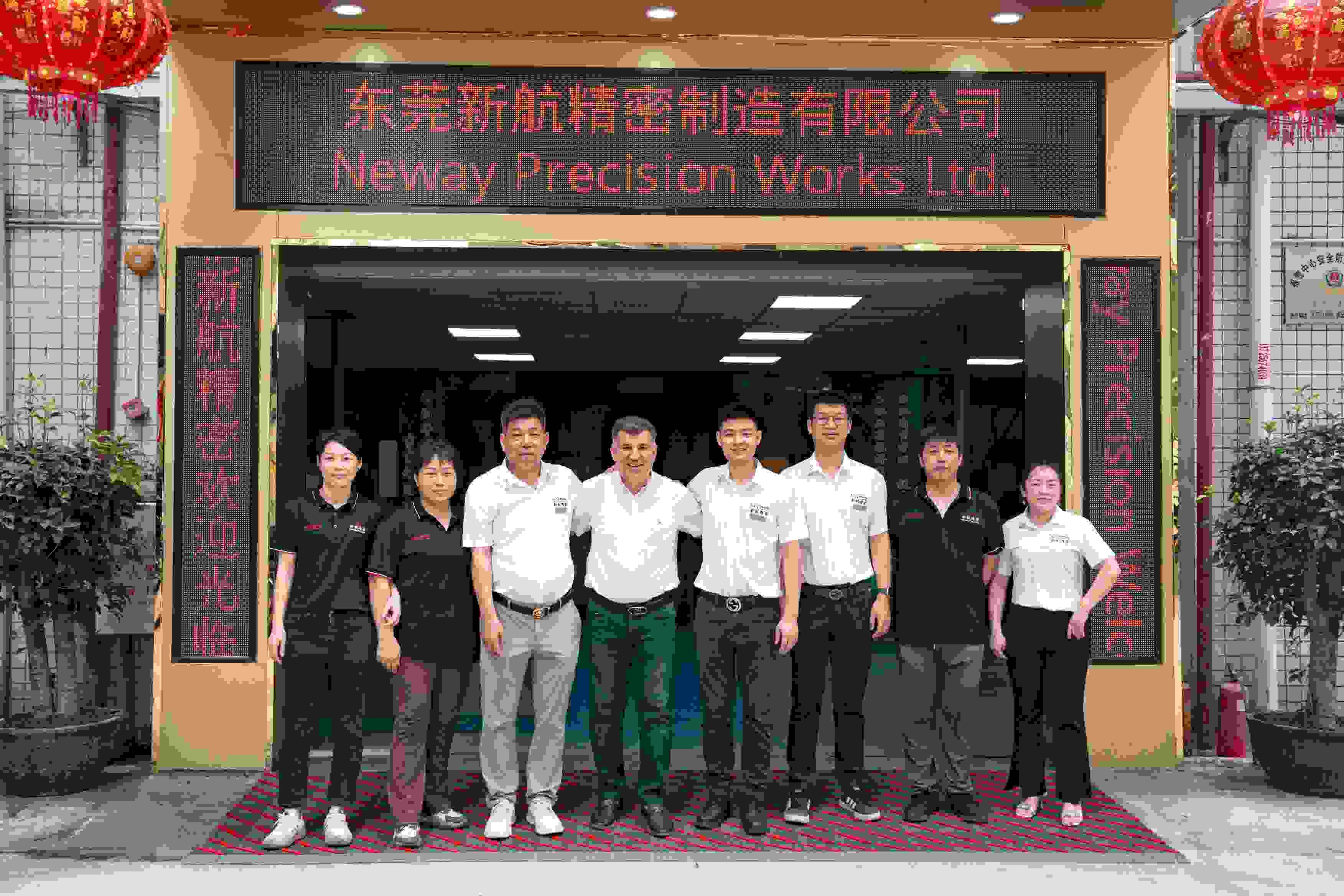High-Strength Aluminum Alloy Die Casting for Industrial Machinery Components
 Industrial machinery demands components that combine strength, precision, and reliability to perform under continuous mechanical and thermal stress. From heavy-duty transmission systems to automated assembly equipment, manufacturers rely on metal parts that can withstand harsh conditions while maintaining dimensional accuracy. Aluminum alloy die casting has become a preferred manufacturing method for producing robust and lightweight industrial components at scale.
Industrial machinery demands components that combine strength, precision, and reliability to perform under continuous mechanical and thermal stress. From heavy-duty transmission systems to automated assembly equipment, manufacturers rely on metal parts that can withstand harsh conditions while maintaining dimensional accuracy. Aluminum alloy die casting has become a preferred manufacturing method for producing robust and lightweight industrial components at scale.
At Neway, we specialize in aluminum die casting services designed for the specific needs of industrial OEMs. Our experience spans applications in automation, power equipment, robotics, and hydraulics—consistently delivering parts that meet strength, weight, and performance specifications.
Why Aluminum Die Casting is Ideal for Industrial Machinery
Aluminum die casting offers a number of mechanical and production advantages over machining or fabrication. It supports complex geometries with fine features, allows for high-volume production, and offers material efficiency unmatched by traditional methods.
Key Benefits
Strength-to-weight ratio ideal for high-load machinery
Tolerances as tight as ±0.02 mm on critical interfaces
Tensile strength up to 310 MPa (heat-treated A356 alloy)
Wall thicknesses from 2.0 mm to 6.0 mm depending on application
Die life from 75,000 to 150,000 shots for aluminum alloys
These attributes allow OEMs to design compact, efficient machinery that performs reliably under load, vibration, and temperature fluctuations.
Common Die Cast Components in Industrial Applications
Die casting supports various structural and functional components in industrial environments. Typical examples include:
Component Type | Examples | Functional Demands |
|---|---|---|
Transmission Housing | Gearbox casings, bearing carriers | Precision bore alignment, vibration resistance |
Structural Supports | Motor mounts, frame brackets | Load transfer, torsional strength |
Pump & Valve Bodies | Hydraulic manifolds, pump covers | Pressure integrity, sealing surface control |
Electrical Enclosures | Control boxes, junction housings | Heat dissipation, corrosion resistance, EMI protection |
Automation Bases | Actuator plates, robotic joint arms | Dimensional accuracy, rigidity under dynamic loads |
High-Strength Aluminum Alloys Used in Die Casting
Neway casts using industry-standard aluminum alloys that meet global performance criteria including ASTM B85, ISO 3522, and SAE J454.
Alloy | Density (g/cm³) | Ultimate Tensile Strength (MPa) | Key Features | Common Uses |
|---|---|---|---|---|
A380 | 2.74 | ~317 | Excellent balance of strength, castability, corrosion resistance | Housings, support frames |
A356 (T6) | 2.68 | 290–310 | Heat treatable, high ductility and fatigue strength | Transmission covers, pump housings |
A360 | 2.65 | ~290 | Superior corrosion resistance, fluidity | Outdoor enclosures, robotic components |
These alloys are suitable for static and dynamic load-bearing parts, as well as complex enclosures requiring sealing and finish quality.
Precision, Strength, and Fatigue Resistance
Our aluminum die castings are engineered to meet stringent tolerances and structural performance targets:
Dimensional tolerance: ±0.05 mm (general), ±0.02 mm (critical)
Machined accuracy: ±0.01 mm on post-machined bores and surfaces
Surface roughness: Ra 1.6–3.2 µm depending on finishing method
Porosity level: <0.5% verified via X-ray and vacuum testing
Pressure tightness: up to 10 bar (suitable for hydraulic applications)
Flatness and parallelism are maintained within 0.1 mm across planes up to 300 mm long, ensuring accurate fit and sealing for assembled components.
Surface Finishing for Industrial Conditions
Neway offers in-house post-processing treatments to enhance durability, improve aesthetics, and meet environmental resistance requirements.
CNC machining: tight-tolerance holes, threads, and faces
Anodizing: Type II and III coatings per MIL-A-8625 for abrasion and corrosion resistance
Powder coating: UV- and chemical-resistant layers (60–100 µm)
Painting: RAL or custom color codes with ISO 2409 adhesion compliance
Sand blasting and tumbling: for surface uniformity and matte texture
Assembly: includes seal inserts, fasteners, dowels, and packaging
These treatments meet industry testing standards, including ASTM B117 for salt spray corrosion and ISO 6270 for humidity resistance.
Tooling, Die Life, and Production Efficiency
Our tool and die making operations allow rapid tooling development and efficient long-run production.
Tool steel: H13 tool steel for aluminum molds
Mold life: 75,000 to 150,000 cycles based on part complexity
Lead time: 4–6 weeks from DFM approval to production-ready tooling
Cycle time: 30–70 seconds, depending on part size and detail
Multi-cavity designs for small part mass production
For development programs, our rapid prototyping service uses soft tooling or 3D-printed molds to validate form and fit before ramping up low-volume or mass production.
Case Study: Power Transmission Bracket for Agricultural Equipment
A global farm machinery OEM required a bracket for mounting a high-torque gearbox in a compact engine bay. The design criteria included:
Tensile strength > 300 MPa
Tolerance on bearing bores ±0.02 mm
Weight savings > 20% over previous cast iron version
Corrosion resistance for outdoor service (10+ years)
Neway selected A356 alloy with T6 heat treatment, applied CNC machining on critical features, and finished the part with anodizing. The part met ISO fatigue standards and exceeded expectations in 1000-hour salt spray tests.
Why Industrial Manufacturers Choose Neway
Neway provides vertically integrated support for industrial casting projects—from concept to delivery:
Design for Manufacturability with simulation and DFM optimization
Fully traceable ISO 9001:2015-compliant production
In-house tooling, casting, machining, coating, and assembly
Documentation packages including PPAP, FAI, and dimensional reports
Reliable logistics and JIT delivery capability
We support manufacturers in automation, transportation, power systems, and beyond—ensuring robust, high-tolerance castings for critical applications.
Conclusion
Aluminum die casting offers a proven method for producing high-strength, corrosion-resistant, and precision-machined components used in industrial machinery. It combines material performance with scalable manufacturing to reduce total cost and improve equipment uptime. With Neway’s engineering depth and manufacturing control, your parts will perform to specification and schedule.
To request a quote or discuss your project with our team, contact Neway today.
FAQs
What aluminum alloys are best for high-strength industrial components?
Can aluminum die castings replace steel in load-bearing machinery?
How are tolerances and strength validated in industrial die cast parts?
What surface treatments protect castings in outdoor environments?
What is the typical tooling and production lead time for new parts?


